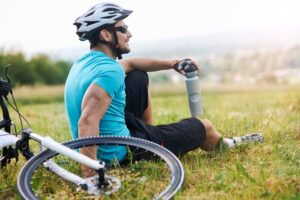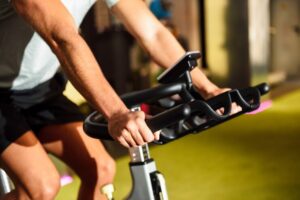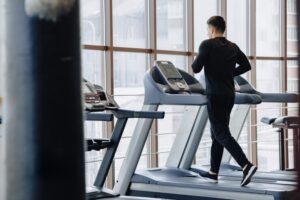Recovery Tips: How to Prevent Indoor Cycling Burnout
Physical Recovery Strategies
Active Recovery
- Light spinning sessions (20-30 minutes)
- Zone 1-2 heart rate only
- Focus on smooth pedaling
- No intense intervals
Rest and Sleep
- 7-9 hours nightly
- Consistent sleep schedule
- Cool, dark room
- Limited screen time before bed
Recovery Tools
- Foam rolling key areas
- Massage gun for tight spots
- Compression gear
- Ice/heat therapy
Nutrition for Recovery
Post-Ride Fuel
- Protein within 30 minutes
- Complex carbs
- Electrolyte replacement
- Adequate hydration
Daily Nutrition
- Anti-inflammatory foods
- Lean proteins
- Colorful vegetables
- Omega-3 rich foods
Mental Recovery
Stress Management
- Meditation practice
- Deep breathing exercises
- Time in nature
- Social connections
Training Balance
- Varied workouts
- Goal reassessment
- Progress tracking
- Celebration of achievements
Preventing Overtraining
Warning Signs
- Persistent fatigue
- Decreased performance
- Poor sleep
- Mood changes
- Lost motivation
Preventive Measures
- Structured training plan
- Regular rest days
- Deload weeks
- Progress monitoring
Recovery Week Structure
Sample Schedule
Monday: Complete rest Tuesday: Light spin Wednesday: Stretching/yoga Thursday: Easy ride Friday: Light strength work Saturday: Medium ride Sunday: Active recovery
Long-Term Sustainability
Training Adjustments
- Periodic intensity reduction
- Season planning
- Goal variety
- Cross-training integration
Lifestyle Integration
- Work-life balance
- Social ride inclusion
- Outdoor alternatives
- Hobby variation
Remember: Recovery is as important as training for long-term cycling success.




